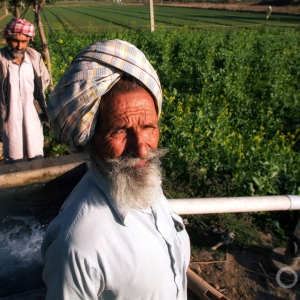The Stream, August 23, 2019: WHO Says Microplastics in Drinking Water Not a Health Risk
The Global Rundown
A study by the World Health Organization (WHO) finds that microplastics in drinking water aren’t necessarily a cause for concern for human health. The U.S. Trump administration allegedly moves to hides a report detailing the dangers to California salmon if more water is pumped to farmers in the San Joaquin Valley. A new report warns that cross-border management agreements for global lakes and rivers are needed to prevent future conflicts. Water stress is predicted to increase in Ethiopia’s Awash Basin, home to the capital city, Addis Ababa. A new law in Texas requires homeowners to notify potential buyers of flood risks.
“[J]ust because we’re ingesting them doesn’t mean we have a risk to human health. The main conclusion is, I think, if you are a consumer drinking bottled water or tap water, you shouldn’t necessarily be concerned.” –Bruce Gordon, the coordinator of water, sanitation, and hygiene for the WHO, in reference to microplastics in drinking water. The report claims that the current levels of microplastics in water likely aren’t dangerous to human health, and argues that bacteria causing waterborne diseases like typhoid and cholera should be a much greater concern. Associated Press
Latest WaterNews from Circle of Blue
Report: Updated Laws and Collaboration Needed to Control Legionnaires’ Disease, America’s Deadliest Waterborne Illness — National Academies report identifies deficiencies in plumbing and building codes, policies, and research.
West Virginia Bets Big on Plastics, and on Backing of Trump Administration — The state’s leaders want a federal loan guarantee to build a giant chemical storage plant that could cost as much as $10 billion. (This story was originally published on ProPublica.)
By The Numbers
40 percent Proportion of the world’s population that relies on water from a transboundary water source. A report by the Economist Intelligence Unit found that only a third of transboundary lakes and rivers have a cross-border water management plan in place. Authors of the report warn that establishing water-sharing agreements now, in times of peace, could be a key to preventing conflict in the future. Reuters
17 percent Proportion of Ethiopia’s population that lives in the Awash River basin, which covers a tenth of the country’s land area and includes capital city Addis Ababa. A recent analysis predicted that conditions in the basin are likely to get more hot and dry in coming years, and urges the government to develop sustainable water sources, especially for the basin’s poorest residents. Phys.org
Science, Studies, and Reports
On July 1, federal scientists submitted a 1,123-page report to the U.S. Trump administration detailing the detrimental impacts to California salmon and West Coast killer whales if more water is pumped to San Joaquin Valley farmers. The report was not released to the public, and within two days, a team was called to rewrite the study. Environmentalists say the administration is trying to conceal the scientific findings, which the administration denies. Sacramento Bee
On the Radar
In the wake of Hurricane Harvey, Texas passed a law that requires homeowners to disclose flood risks to potential homebuyers. Senate Bill 339, which will be implemented on September 1, requires sellers to notify buyers if the home is in a 500-year floodplain or reservoir, and if the home has flooded in the past. Texas Tribune

Kayla Ritter is a recent graduate of Michigan State University, where she studied International Relations and Teaching English to Speakers of Other Languages. She is currently based in Manton, Michigan. Kayla enjoys running, writing, and traveling. Contact Kayla Ritter






Leave a Reply
Want to join the discussion?Feel free to contribute!